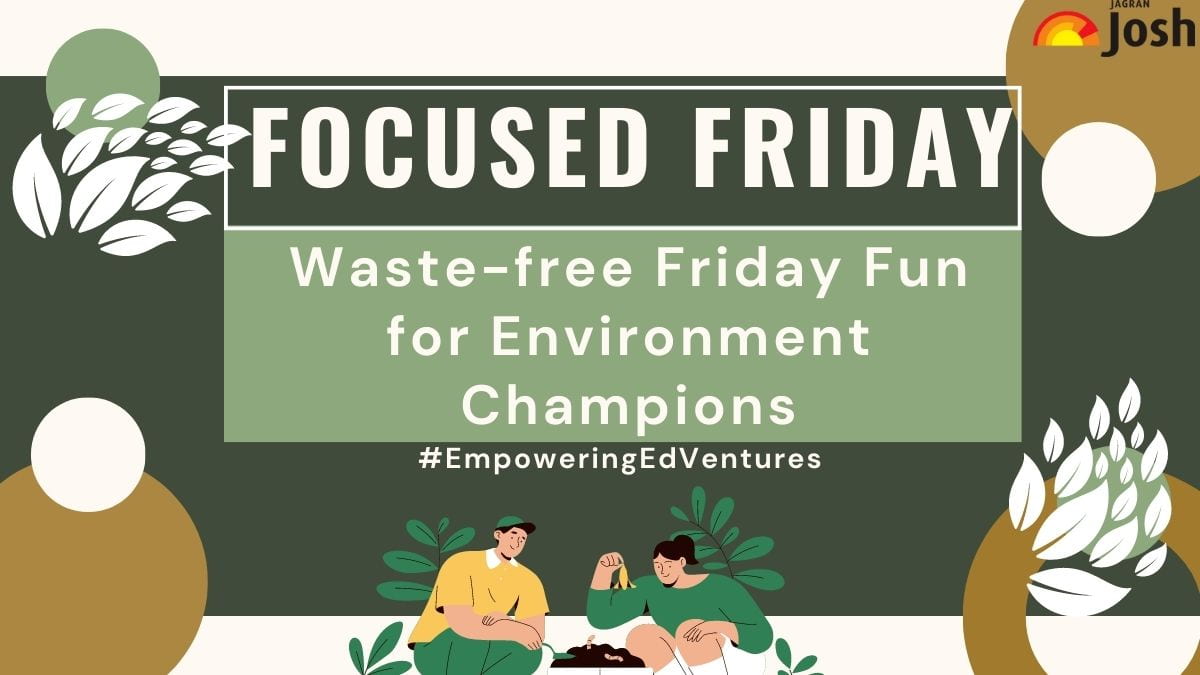In today’s world, environmental consciousness is more critical than ever, and it is essential to instill sustainable habits in the younger generation from an early age. The “Focused Fridays” in our #EmpoweringEdVentures is a special initiative dedicated to empowering school children with knowledge and practices that contribute to a greener and healthier planet. In this article, we focus on “Waste-free Friday Fun,” aiming to make Fridays both enjoyable and environmentally responsible for kids.
The Impact of Waste on the Environment
Waste generation is a significant environmental issue that affects the planet in various ways. From overflowing landfills to marine pollution, the consequences of waste mismanagement are far-reaching. School children play a crucial role in addressing this problem, and by adopting waste-free practices, they can become change agents in their communities.
Why Focus on Waste-Free Fridays?
Designating Fridays as “Waste-free” days can create a sense of purpose and unity among school children. By collaborating to reduce waste collectively, students can experience the power of teamwork and understand that their actions, no matter how small, can make a significant impact.
Creating Awareness and Understanding
Before implementing Waste-free Fridays, it is essential to educate the children about the importance of waste reduction and its environmental impact. Organize interactive sessions or workshops to help them comprehend the lifecycle of waste, the concept of recycling, and the difference between biodegradable and non-biodegradable materials.
Practical Tips for Waste-Free Fridays for Environment Champions
Practical Tips for Waste-Free Fridays for Environment Champions |
1. Litterless Lunches:Encourage children to bring lunches that generate minimal waste. Use reusable containers for sandwiches, fruits, and snacks. Avoid single-use plastic wraps or disposable utensils. |
2. Reusable Water Bottles:Hydration is vital, especially for active kids. Request students to bring reusable water bottles instead of single-use plastic bottles. |
3. Waste-Free Crafts:Engage children in creative activities that involve upcycling or reusing materials. Show them how to create artwork using old newspapers, cardboard, or plastic bottles. |
4. Recycling Station:Set up a recycling station in the school premises, where students can deposit recyclable items like paper, cardboard, and plastic bottles. This will teach them the importance of proper waste segregation. |
5. Composting:Teach kids about composting and its benefits. If the school has a garden, involve them in composting organic waste from the school cafeteria or leftover fruits. |
6. Environmental Games:Organize fun games and activities related to waste reduction and recycling. This will make learning enjoyable and reinforce the message effectively. |
7. Reduce Paper Usage:Embrace digital methods for communication and assignments, reducing paper usage. Encourage kids to take notes on devices or reuse the back of old papers for rough work. |
8. Trash-to-Treasure Artwork:Encourage children to express their creativity while reusing materials that would otherwise be discarded. Collect a variety of recyclable items like old newspapers, cardboard, plastic bottles, and egg cartons. Provide non-toxic paints, glue, and scissors to help transform these items into unique and beautiful artwork. Whether they create sculptures, collages, or paintings, children will learn the value of upcycling and repurposing waste into something beautiful. |
9. Eco-Friendly Picnic:Organize a waste-free picnic where students bring their own reusable containers, cutlery, and water bottles. Encourage them to pack snacks and lunches in washable containers to reduce single-use plastic waste. Enjoying a picnic in the park or on the school grounds not only fosters a sense of community but also educates children about the importance of avoiding disposable items. |
10. Recycling Games:Transform learning about recycling into an exciting and educational game. Create a sorting station with different bins labeled for different types of waste, such as plastic, paper, glass, and metal. Use images to represent each category and ask the children to sort items into the appropriate bins. This hands-on activity will deepen their understanding of recycling practices and the significance of waste separation. |
11. Plant a Garden:Get students involved in gardening as a waste-free activity. Set up a small garden area in the schoolyard where children can plant vegetables, fruits, or herbs. Not only will this teach them about plant growth and care, but it also emphasizes the importance of reducing food waste by growing and consuming their produce. |
12. Nature Scavenger Hunt:Organize a nature scavenger hunt to encourage students to explore the outdoors while developing an appreciation for nature. Create a list of items they can find in the environment, such as leaves, rocks, flowers, and different types of insects. Emphasize the importance of not disturbing natural habitats and leaving no trace behind, thus reinforcing the principles of waste reduction and environmental preservation. |
Involving Parents and the Community
Extend Waste-free Fridays beyond the school boundaries by involving parents and the local community. Share information and tips on waste reduction through school newsletters, social media, or community events.
Discussion
Waste-free Friday Fun is an excellent opportunity to teach school children about the importance of waste reduction and environmental stewardship. By adopting sustainable practices from a young age, they can become conscious consumers and environmentally responsible citizens in the future. Let’s come together to empower our children with knowledge and inspire them to make a positive impact on the world, one Waste-free Friday at a time.
Also Read:


